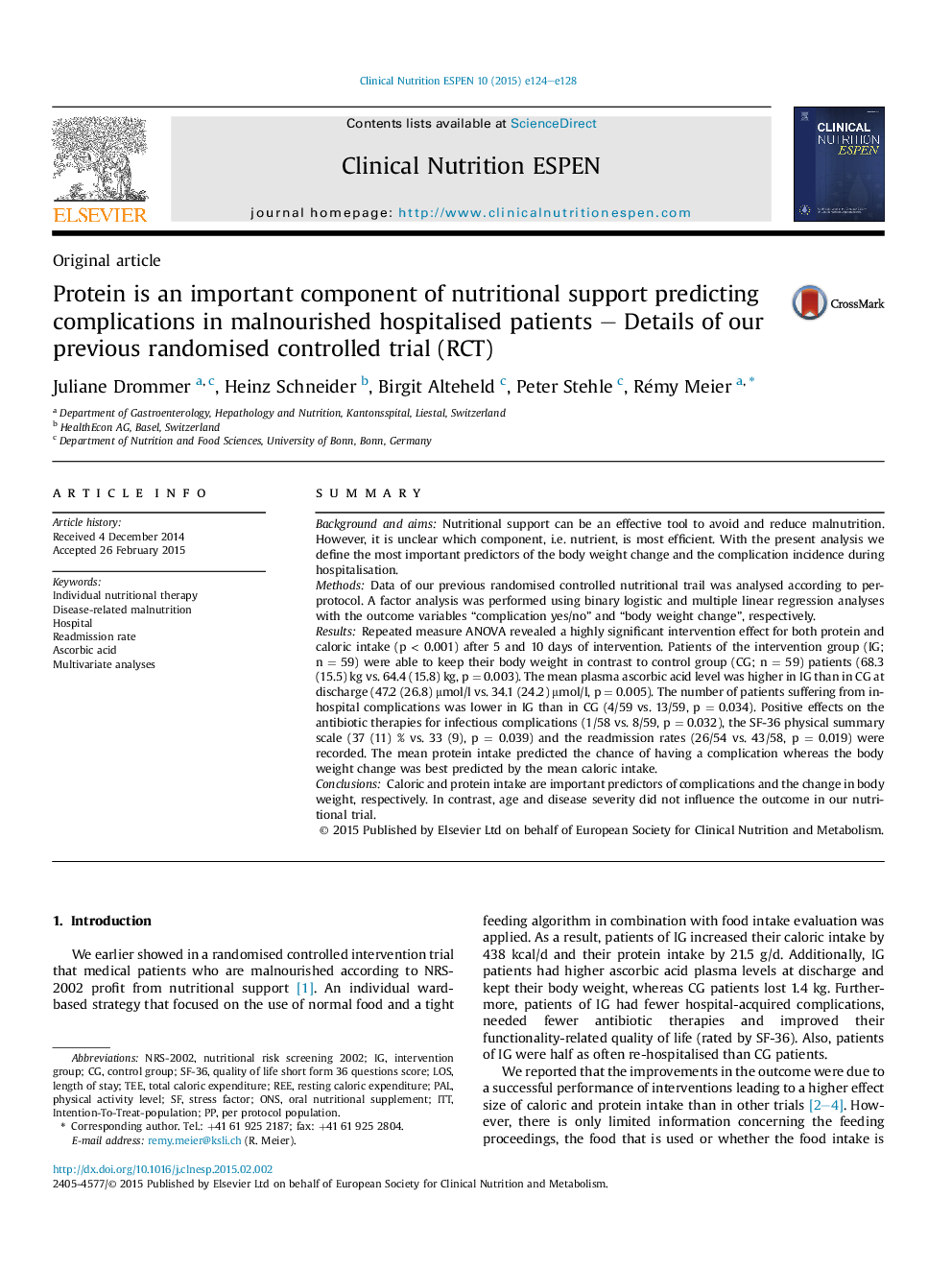| Article ID | Journal | Published Year | Pages | File Type |
|---|---|---|---|---|
| 2689061 | Clinical Nutrition ESPEN | 2015 | 5 Pages |
SummaryBackground and aimsNutritional support can be an effective tool to avoid and reduce malnutrition. However, it is unclear which component, i.e. nutrient, is most efficient. With the present analysis we define the most important predictors of the body weight change and the complication incidence during hospitalisation.MethodsData of our previous randomised controlled nutritional trail was analysed according to per-protocol. A factor analysis was performed using binary logistic and multiple linear regression analyses with the outcome variables “complication yes/no” and “body weight change”, respectively.ResultsRepeated measure ANOVA revealed a highly significant intervention effect for both protein and caloric intake (p < 0.001) after 5 and 10 days of intervention. Patients of the intervention group (IG; n = 59) were able to keep their body weight in contrast to control group (CG; n = 59) patients (68.3 (15.5) kg vs. 64.4 (15.8) kg, p = 0.003). The mean plasma ascorbic acid level was higher in IG than in CG at discharge (47.2 (26.8) μmol/l vs. 34.1 (24.2) μmol/l, p = 0.005). The number of patients suffering from in-hospital complications was lower in IG than in CG (4/59 vs. 13/59, p = 0.034). Positive effects on the antibiotic therapies for infectious complications (1/58 vs. 8/59, p = 0.032), the SF-36 physical summary scale (37 (11) % vs. 33 (9), p = 0.039) and the readmission rates (26/54 vs. 43/58, p = 0.019) were recorded. The mean protein intake predicted the chance of having a complication whereas the body weight change was best predicted by the mean caloric intake.ConclusionsCaloric and protein intake are important predictors of complications and the change in body weight, respectively. In contrast, age and disease severity did not influence the outcome in our nutritional trial.
